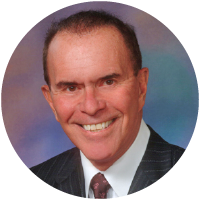Learn why melatonin is so important for helping you get to sleep and what happens if you don’t produce enough of it
Melatonin is popularly known as a nutrient that helps you sleep at night, but it is more accurately described as the hormone that regulates our circadian rhythms and sleep cycle. That is, it helps set our internal body clocks so we fall asleep and wake up at appropriate times.
Melatonin is produced by the pineal gland, deep within the brain, when we’re exposed to darkness.
Each evening, as the level of melatonin in the blood rises, it signals the body that it’s time to sleep. In response, our body prepares to fall asleep and we begin to feel drowsy.
People who produce healthy levels of melatonin tend to sleep soundly through the night and wake feeling rested and refreshed. But for many people—particularly as they age—the production of melatonin is disrupted, causing them to have problems falling asleep and/or staying asleep.
When you don’t get essential deep sleep on a regular basis, the consequences are far more serious than fatigue and grogginess during the day. In fact, growing research has linked a lack of sleep to numerous health issues, including hypertension, diabetes, obesity, depression and impaired cognitive function. That’s why getting a good night’s sleep is a must for your long-term good health.



